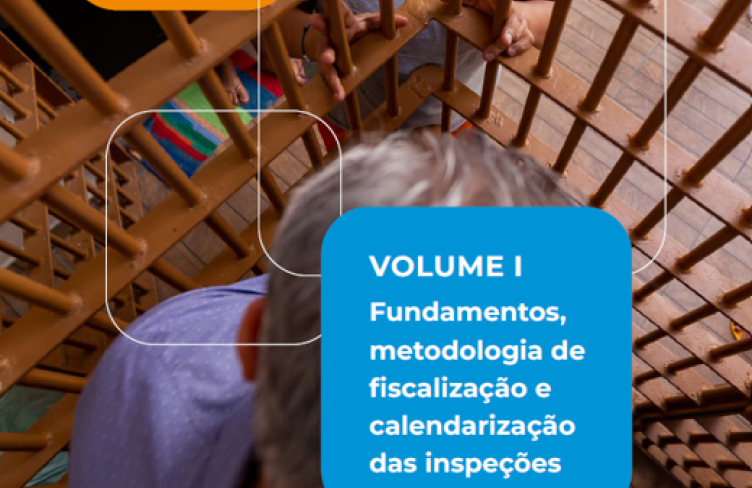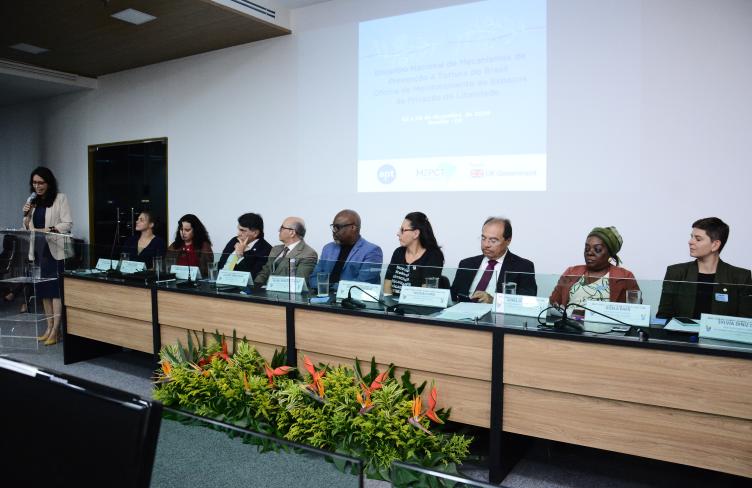
A landmark report released today by the APT highlights significant challenges and systemic discrimination faced by women in prisons around the globe, calling for urgent reforms and greater use of alternatives to detention.
Drawing on data and analysis from National Preventive Mechanisms (NPMs) in 46 countries across Africa, Asia Pacific, Europe and Latin America, the report provides the first global analysis of women in prison based on the findings of independent oversight bodies.
The APT’s Global Report on Women in Prison: Analysis from National Preventive Mechanisms reveals that women, who represent a small but growing percentage of the global prison population, are often subjected to systemic neglect and discrimination.
“This important study highlights the troubling reality that many women are incarcerated for non-violent, low-level offenses linked to poverty, marginalisation, and societal inequality,” APT Secretary General Nicole Hogg said.
"This approach not only fails to address the root causes of offending but also perpetuates cycles of disadvantage and harm."
The report identifies significant areas of concern for women in prison in the 46 countries reviewed, including:
- Problematic practices: Women in prison are specifically affected by humiliating and invasive body searches, and the inappropriate use of solitary confinement and restraints. These practices are particularly harmful for pregnant women, LGBTIQ+ women, indigenous women and women with mental health conditions.
- Neglect of gender-specific needs: Access to adequate healthcare, hygiene facilities and products, and mental health services often falls far short of international standards, exacerbating pre-existing vulnerabilities.
- Intersectional discrimination: Foreign women, indigenous women, older women, LGBTIQ+ women, pregnant women and women from diverse ethnic and racial backgrounds face specific – and sometimes greater – risks of abuse and discrimination.
The report confirms that prison systems still too often fail to recognise and respond to women's distinct needs or to consider the especially harmful impact of certain practices, which can increase the risk of ill-treatment of women in prison. It is a call to action to address these shortcomings.
Since the adoption in 2010 of the United Nations Bangkok Rules, which aim to address the needs of women in the criminal justice system, important progress has been made but much remains to be done to implement these standards in practice.
The report offers comprehensive recommendations to drive systemic change for women in prison, emphasising the crucial role of NPMs in leading reforms.
Key recommendations include:
- Implementing gender-responsive alternatives to imprisonment for women, particularly for non-violent offenses
- Implementing alternatives to harmful or humiliating practices that can, in certain circumstances, amount to ill-treatment, such as solitary confinement, use of restraints and body searches
- Ensuring access to gender-specific healthcare and mental health support
- Strengthening family contact through flexible visiting arrangements and communication options
- Improving staff training on gender-sensitive approaches
- Addressing the specific needs of women at heightened risk of ill-treatment, including pregnant women, LGBTIQ+ women, indigenous and foreign women.
The report also provides good practice examples from different countries.
The Global Report is accompanied by individual country reports prepared by NPMs and Local Preventive Mechanisms operating in the 46 countries.
“NPMs and other oversight bodies can use this data and analysis as a powerful tool for advocacy, leveraging the evidence-based findings to engage with authorities and push for improved treatment and conditions for women in prison and increased use of alternatives to detention,” APT Senior Adviser, Vulnerabilities and Policy, Veronica Filippeschi said.
“The APT is grateful for the collaboration and detailed input from so many NPMs. Their contributions have helped create a roadmap for reform that can significantly lower the risk of abuse and ill-treatment for women deprived of liberty,” she added.
The Global Report is supported by the Government of Canada and the City of Geneva.



